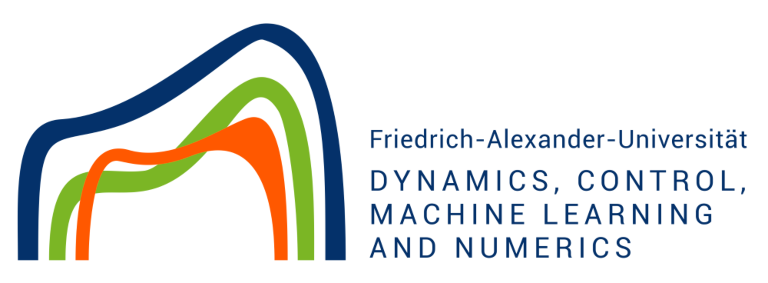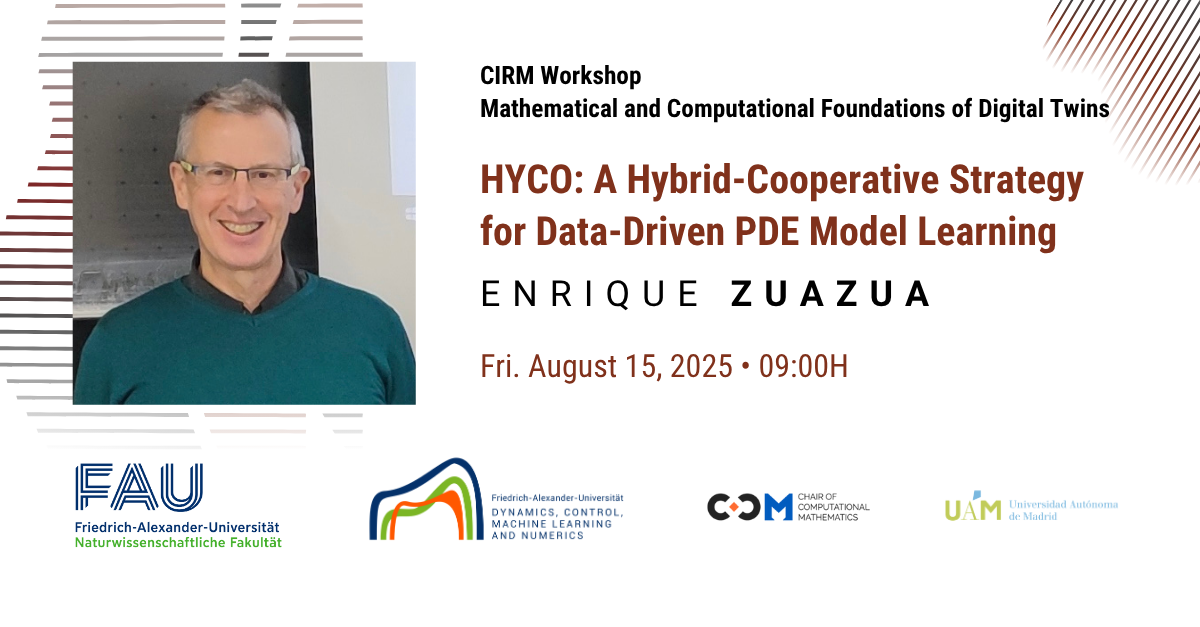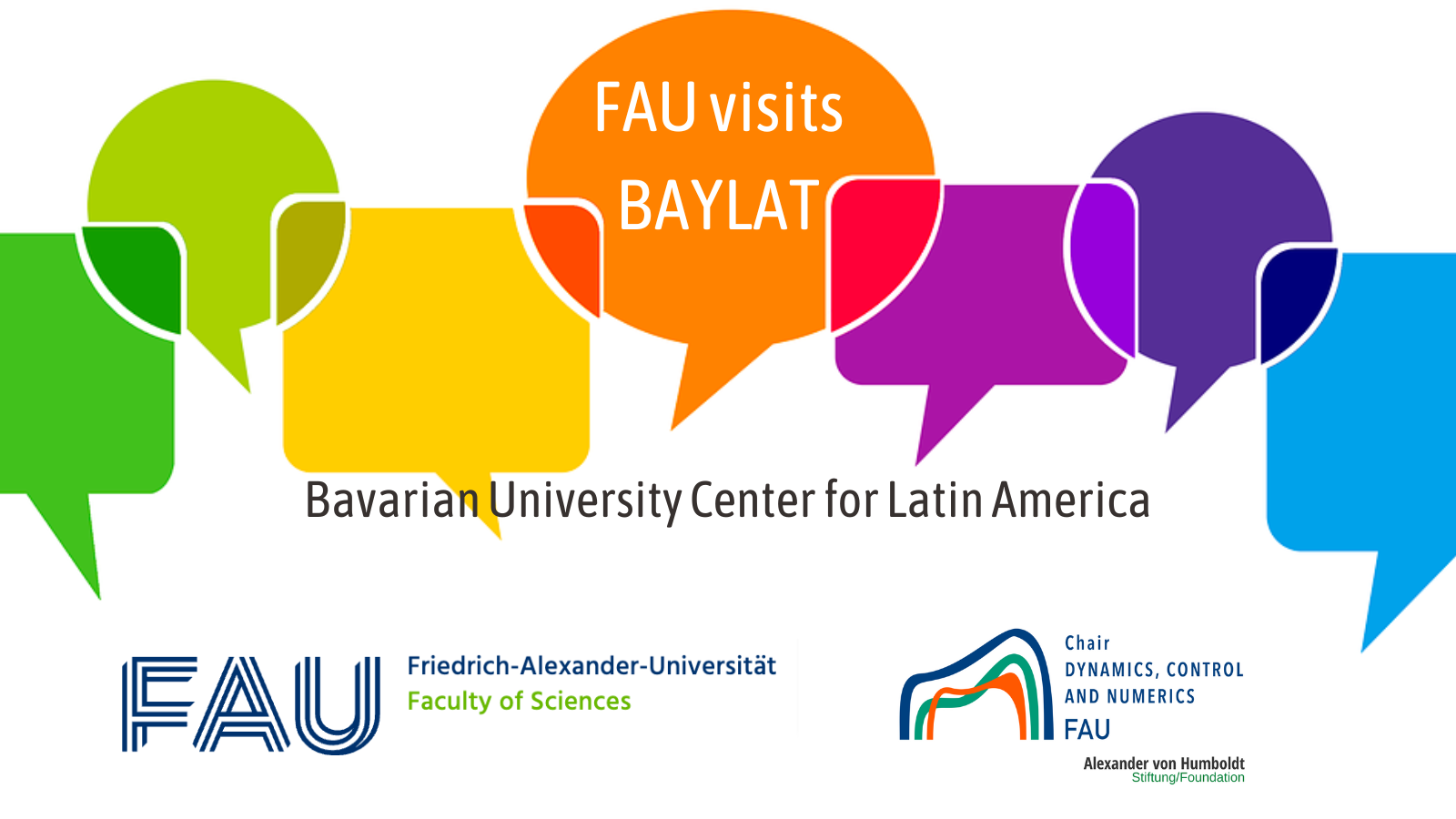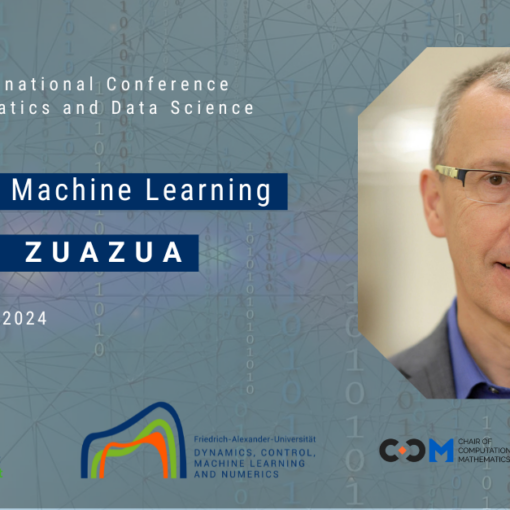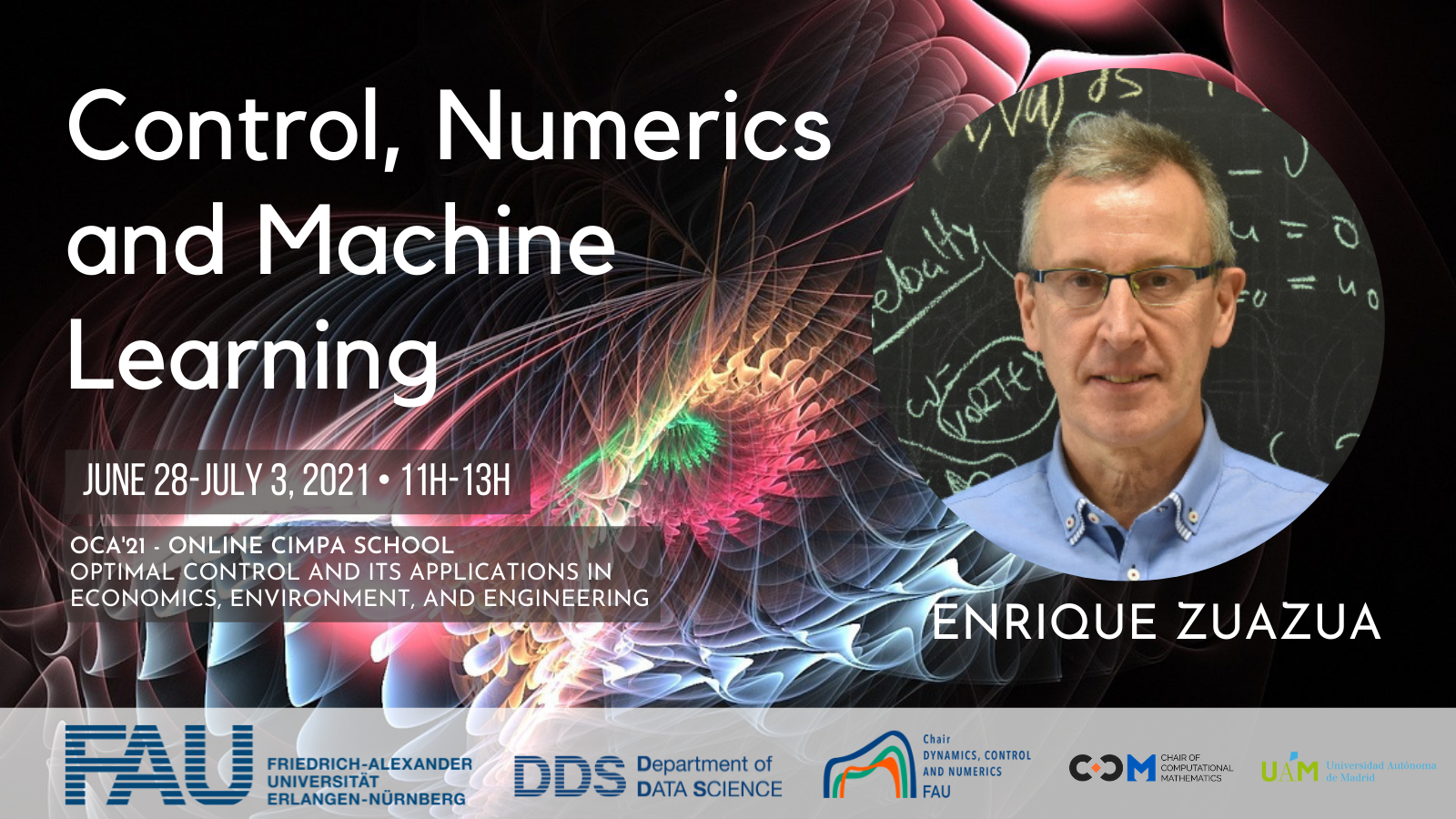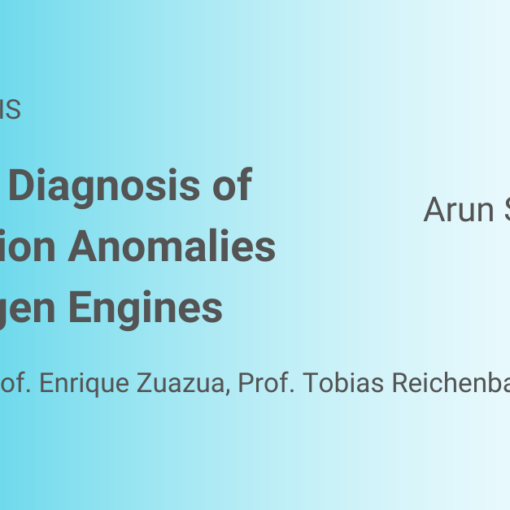Date: Fri. August 15, 2025 at 09:00H (local time)
Event: CIRM Workshop “Mathematical and Computational Foundations of Digital Twins”
Talk: HYCO: A Hybrid-Cooperative Strategy for Data-Driven PDE Model Learning
Speaker: Prof. Enrique Zuazua, FAU – Friedrich-Alexander-Universität Erlangen-Nürnberg (Germany)
Abstract. In this talk, we introduce a novel Hybrid-Collapse (HYCO) strategy for constructing mathematical models of physical systems from data. Conventional approaches typically rely either on data-driven, lightweight synthetic models—such as neural networks—or on high-fidelity physics-based models that can be computationally intensive. Our HYCO approach bridges these two paradigms by hybridizing them and collapsing their complementary strengths into a unified framework. By combining the empirical insights extracted from data with the structural knowledge of the physical models generating that data, HYCO achieves robust and accurate representations of underlying physical phenomena. Through a series of numerical experiments, we demonstrate that HYCO outperforms classical methods in learning physical models, particularly in challenging scenarios involving sparse, noisy, or localized datasets
This workshop will bring together experts from academia, industry, and research agencies to explore how advancements in real-time synchronization between digital twins and their physical counterparts, along with developments in areas such as surrogate modeling, control theory, inverse problems, large-scale Bayesian methods, reduced-order modeling, dimension reduction, data assimilation, and uncertainty quantification, can stimulate the advancement of digital twin technologies.
In addition to theoretical developments, the workshop will also feature discussions on real-world applications, highlighting how digital twin technologies are being applied across various domains including but not limited to industrial applications, various areas of Earth, life, and physical sciences, and mechanical, civil, and aerospace engineering.
The workshop aims to foster interdisciplinary collaboration and inspire new research in computational and applied mathematics that can meet the actual demands of complex, real-world applications, ensuring that digital twin technology is not only theoretically sound but also practically impactful.
The event will also provide young researchers with valuable insights into the relevance of this rapidly evolving field, guiding them in shaping their academic and industrial careers toward high impact areas in applied and computational mathematics.
WHEN
Fri. August 15, 2025 at 09:00H (Berlin time)
WHERE
Auditorium A2. CIRM, International Centre Meetings Mathematics
163 avenue de Luminy, Case 916
13288 Marseille cedex 9, France
Schedule
See Time schedule
Speakers
• Harbir Antil, George Mason University: Optimization and High Fidelity Digital Twins
• Théo Bourdais: Minimal Variance Model Aggregation: A principled, non-intrusive, and versatile integration of black box models
• Amy Braverman, Jet Propulsion Laboratory
• Tan Bui-Thanh, University of Texas At Austin: Towards Real-Time Probabilistic SciML algorithms for Digital Twins
• Matthieu Darcy: Kernel methods for operator learning
• Fariba Fahroo, Air Force Research Laboratory: Opening
• Charbel Farhat, Stanford University: An Adaptive Probabilistic Physics-Based Framework for High-Fidelity Digital Twins
• Roger Ghanem, University of Southern California: Recent Advances in Characterizing Model Error
• Omar Ghattas, University of Texas at Austin: Derivative informed neural operators (DINOs) for Bayesian inverse problems and optimal control under uncertainty
• David Ginsbourger, University of Bern: Modelling invariances and equivariances with GP models
• Alex Gorodetsky, University of Michigan: Towards understanding the effects of approximations in parameter-state data assimilation
• Maria Han Veiga, Ohio State University: Policy gradient algorithms for PDE based control problems
• Owhadi Houman (Caltech)
• Edgar Jaber, Edf R&D / Ens Paris-Saclay: A Bayesian methodology for hybrid degradation prognostics
• Alex Konomi, University of Cincinnati: Bayesian Multifidelity Transport Maps for Computer Models with Large non-Gaussian and non-linear Spatial Output
• Boris Kramer, University of California San Diego: Nonlinear control and balanced truncation for high-dimensional systems
• Christian Linder, Stanford University: Towards a digital twin for additive manufacturing
• Jodi Mead, Boise State University: Efficient Model Error Covariance Estimation in four dimensional variational data assimilation via the Representer Method and Regularization Techniques
• Sebastian Reich, University of Potsdam: Mean-field Pontryagin formulation for stochastic optimal control
• Nicolas Rouquette (et Propulsion Laboratory)
• Tuhin Sahai, Sri International: Automating the Discovery of Algorithms using Computational Language Processing
• Eric Savin, Centralesupélec: Generative diffusion for fluid flows
• Claudia Schillings, Freie University Berlin: Ensemble Kalman Methods for Optimization: Subspace Control, Subsampling, and Applications in Machine Learning and Optimal Control
• Jouni Susiluoto: Nasa Jet Propulsion Laboratory
• Daniel Tartakovsky, Stanford University: Reduced order models for digital twins
• Xin Tong: Diffusion models for high dimensional digital twins
• Dongbin Xiu, Ohio State University: Numerical Approach for Targeted Digital Twins: Direct Modelling of Quantity-of-Interest in Complex Simulation Models
• Guannan Zhang, Oak Ridge National Laboratory: Generative AI for Quantifying Uncertainties in Digital Twin Predictions using Observation Data
• Enrique Zuazua, University Of Erlangen-Nuremberg: HYCO: A Hybrid-Cooperative Strategy for Data-Driven PDE Model Learning
• Paolo Zunino, Polytechnic University of Milan: Probabilistic Formulation of Personalized Risk Assessment: A New Approach for Digital Twins in Oncology
Organizing Committee
• Amy Braverman, Nasa Jet Propulsion Laboratory
• Fariba Fahroo, Air Force Office of Scientific Research
• Houman Owhadi, Caltech
• Jouni Susiluoto, NASA Jet Propulsion Laboratory
• Daniel M. Tartakovsky, Stanford University
• Dongbin Xiu, The Ohio State University
• Olivier Zahm, Inria, Université Grenoble Alpes
• Enrique Zuazua, FAU – Friedrich-Alexander-Universität Erlangen-Nürnberg
_
See more at the official page of the event
